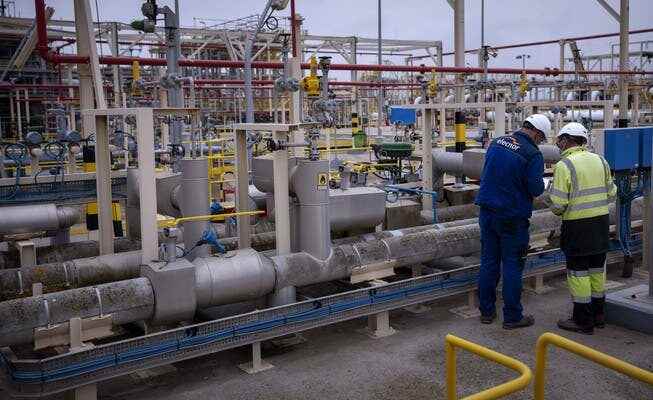Somewhat reluctantly, the Commission presented a price cap for natural gas, which member states such as France, Italy and Spain were vehemently demanding. It will soon become clear whether the member states are satisfied with the holey model.
Finding a solution to the gas price issue is complex.
Because of the natural gas price cap, there is rumbling behind the scenes in Brussels. While the Commission and Germany, for example, have so far been skeptical about this market intervention, countries such as France, Italy and Spain are calling for the lid to be lifted.
The Council wants it, the Commission doesn’t want it
Charles Michel, the representative of the member states, is said to have asked the Commission in a recent letter to finally move forward and present a price cap. At least that’s what the generally well-informed media platform wrote political. It doesn’t help much that the President of the European Council and Ursula von der Leyen, the President of the Commission, obviously don’t have anything for each other personally either.
In addition, the market development has fortunately taken the wind out of the sails of the interventionists. Although natural gas is still significantly more expensive than the long-term average, it is no longer as expensive as it was at times this summer.
But anyone familiar with the mechanisms in Brussels knows that when heavyweights like France, Italy and Spain demand something, the Commission has to deliver. Accordingly, on Tuesday she presented the natural gas price cap, which she herself called Market Correction Mechanism (market correction mechanism, MCM).
This one is complicated. And it gives the impression that the Commission deliberately designed it with holes. A cap is formally proposed, but this should be used as seldom as possible and if that is the case, Brussels can immediately suspend it again in case of doubt.
Specifically, the Commission is building on its proposal from mid-October. For one year, it would like to create the possibility of temporarily activating a market correction mechanism, the cap, through emergency legislation.
This is intended to prevent “excessive” prices. EU officials said summer prices, for example, were unrelated to physical shortages of natural gas and were therefore “excessive”.
However, economists do not share this assessment. Finally, with the throttling of deliveries by Russia and the filling of stocks, in particular by the largest customer in Europe, Germany, there were certainly reasons for a strong rise in prices. The mild weather in October and early November, together with the well-stocked storage facilities, contributed to the fall in prices.
The correction mechanism should be activated automatically when two criteria are met. First, the wholesale price of natural gas exceeds the price of 275 euros per megawatt hour for two weeks. Second, the difference between the pipeline natural gas based benchmark and the liquefied natural gas (LNG) market price is greater than EUR 58 for ten consecutive trading days during the two weeks relevant to the first criterion. If both apply, contracts concluded for more than 275 euros are invalid. The decision to switch off the mechanism will also be based on data.
The upper limit, more or less arbitrarily defined by the Commission, is currently well above the market price of around 120 euros per megawatt hour for the reference product in the Netherlands.
Affected by the lid is “only” the Dutch TTF futures market for natural gas to be delivered next month. It is therefore to be expected that sellers who want to earn more than the capped price would possibly evade. They could either use another exchange or sell the gas directly to a customer (over the counter).
Security of supply at risk
During the activation of this correction mechanism, the Commission has all sorts of options to suspend the measure. For example, if gas consumption should increase. This is to be expected when gas can be bought in Europe at a lower price than the global market price, opening up arbitrage opportunities. This is also the case if there are supply difficulties. The latter is to be feared if, for example, the Americans would rather sell their liquefied natural gas in Asia than accept a discount in the EU.
Next, on Thursday, the energy ministers of the 27 EU member states will discuss the Commission’s proposal in Brussels. It will be seen whether they can agree on a concrete compromise. So far, there has only been general agreement that something needs to be done about the high prices, and many have spoken of price caps. However, opinions have so far differed quite widely on how this cover should be designed.
